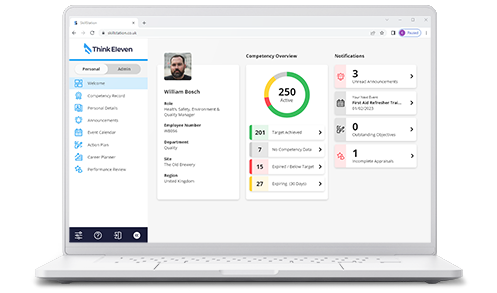5 tips to transform your performance appraisals, and key considerations to optimise this important and valuable process.
5 tips to transform your performance appraisals
Having sat at both sides of the appraisal process and met and spoken to countless organisations, the process of performance management (appraisals) seems to be an on-going challenge for most. Some common issues include:
- Poor completion rates
- Failure to close the actions, objectives and training requirements
- Inconsistent outcomes
- Have the opposite outcome to that intended i.e. demotivational
Outlined below are some key considerations to optimise this important process.
Some Common Issues
These are some of the issues, excuses and reasons commonly raised:
- I don’t have enough time to complete appraisals
- They’re a waste of time because nothing ever happens as a consequence of the appraisal
- Organisational objectives have not been set or communicated, so I can’t do the appraisals
- I can’t see the value of the appraisal
- It’s a one-way process, they don’t listen
- I’ve got too many appraisals to do
- They never deliver what they agree to
- It’s not a positive/motivational process
- Why didn’t you tell me there was a problem before now, that happened over 6-month ago?
You might recognise some of the above as to why performance appraisals remain a challenge.
Optimising Performance Appraisals
If you recognise some of the issues outlined above and would like to tackle and improve your approach to performance appraisals, then here’s some areas you might want to consider.
Purpose
What’s the purpose, intended outcome of your performance appraisal process? This should be clearly defined and shared across your entire workforce. Once defined, it is important that your approach aligns and delivers with your defined purpose.
Objectivity
Including evidence of performance is a key component of an effective, fair and accurate assessment of performance. Assessments need to be based on objective data and not subjective information.
Process/Template
Having a fit-for-purpose process/template that covers the required elements of your performance appraisal is important. A common issue is that one template/approach may not be suitable for all roles. You may need to develop fit for purpose solutions aligned to the people, roles and hierarchy of your organisation.
Process/templates should typically cover:
- Review of last performance period including the status of actions, objectives and training.
- Values and behaviours should be an important element of the review process i.e. it’s not just about technical proficiency but how they perform and fit culturally with the organisation and their peers.
- Technical proficiency is an important aspect but must be evidence based.
- Identification of development needs to close gaps.
- Discussion around career goals.
- Agree the outcome of the appraisal, this can sometimes be a grade/level.
- Any final comments.
- Plan the date for the next review, which preferably will not be the next formal review date, but a series of interim catchup meetings (conversations) to make sure everything is okay and going to plan.
In some cases, you may like to include 360° feedback for some aspects of the appraisal process. This can be especially valuable in key and senior roles e.g. heads of department and directors.
Effective Review
Review meetings should be planned and allow the line-manager and employee(s) to prepare effectively for the review meeting. The review meeting should align with the purpose of your performance appraisal and when done well, should have no surprises from/for either party.
This is not the place to raise issues from the past that should have been addressed at the time.
The setting of the meeting is key, e.g. in a comfortable private location with parties sat preferably next to one another or diagonally at the corner of a table. It should be a conversation to review performance since the last meeting, identify areas of support and plan for the future.
Frequency
Possibly one the biggest challenges and main failings of most performance appraisals. I’ve outlined some common failings below:
- Completed before the end of the financial year i.e. March, which may align with other conflicting pressures. This is especially challenging when a line-manager has high number of direct reports. What typically happens is that the appraisal process takes a back seat to other more pressing priorities. This may also happen because no one really values the appraisal the process and sees as a distraction from business as usual.
- Reviews only take place once per year with no interim reviews.
- Conversely, there are too many reviews adding an additional admin burden for the line-manager with no perceived or tangible benefit/outcome apart from one of compliance… it’s been done, box ticked.
Some options for improvement:
Schedule
Schedule reviews on either the anniversary of start date or alphabetically so they occur throughout the year. This removes the conventional annual bottleneck and reduces the pressure on managers. It also allows them to practice the skills required to engage in an effective review without the time constraints of the bottleneck.
Periodic review sessions
Carryout regular/periodic informal review sessions throughout the year. These meetings/conversations will reflect on the formal review meeting and the planned activity but will be used to simply check everything is going to plan or identify where support is required. These meetings might be scheduled quarterly.
Further information
If you have any questions or would like to discuss anything raised in this blog, please don’t hesitate to contact us. We’d be delighted to help and provide a review and feedback on your Performance Appraisal Process.
If you’d like to learn more about how we can add further value through the digital transformation of your appraisal process through SkillStation, then get in-touch.


